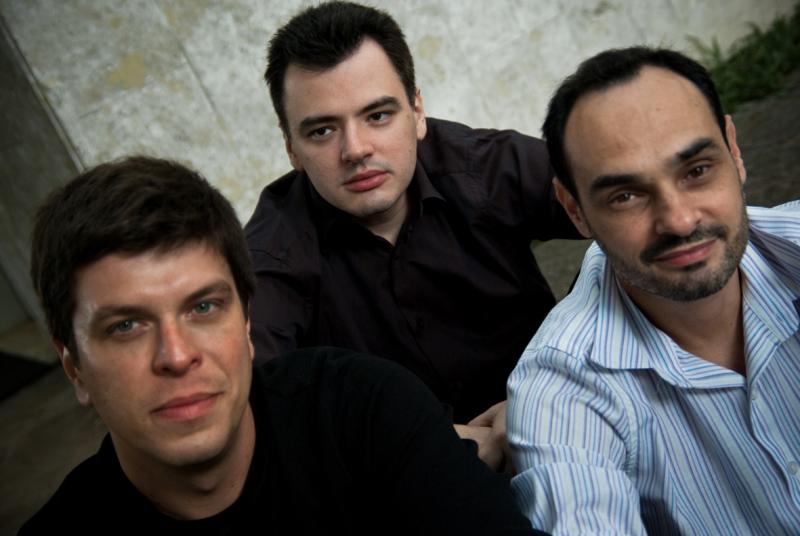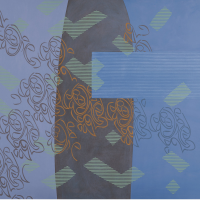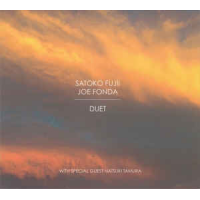Home » Jazz Articles » Interview » Fábio Torres: The Making of Modern Brazilian Jazz
Fábio Torres: The Making of Modern Brazilian Jazz

Fabio Torres is a great example of all this. With Trio Corrente he has sought nothing less than excellence in composition and interpretation. A result that led him to win the Grammy Award and Latin Grammy for "Best Latin Jazz Album" for his contributions on Paquito D'Rivera's Song For Maura.
All About Jazz: You grew up in São Paulo. When did you first get into music?
Fabio Torres: My father, though not a musician, he was a music lover. He enjoyed listening to MPB, Chico Buarque, Elis Regina, Gilberto Gil, Antonio Carlos Jobim, even the most popular classics that he loved such as Beethoven's 9th symphony, Bach's toccatas, and Beethoven's 5th Symphony. When I was five years old my father had me learn classical piano at the Villa-Lobos Conservatory of Music in Osasco City. In 1997 I graduated in Composition at USP.
AAJ: When did you first develop an interest in jazz?
FT: This contact, this search for aesthetics, for those not born in a family of choro musicians, or something like that, the search was a slow process, because I had a lot of contact with classical music at the conservatory and then in college. I was like most teenagers; I had my rock band. I loved to play Emerson, Lake and Palmer then I bought my first synthesizer when I was 15 years old. All of these things together have made my musical history.
AAJ: So you were really influenced by traditional Brazilian music?
FT: The contact with the Brazilian instrumental music—in addition to MPB—the encounter with the Brazilian jazz was through Hermeto Pascoal.
This was the first Hermeto's concert I had attended and it was an incredible experience. It was breathtaking! Since then, I had no doubt that I wanted to play Brazilian jazz.
AAJ: What were some of the records that really inspired you during that time?
FT: I really like the Brazilian song. I loved Tom Jobim, Chico Buarque, Toninho Horta. Indeed Brazilian jazz musicians have a great bond with the Brazilian song.
Hermeto sings sometimes on his records. Egberto Gismonti has written songs.
An album that really struck me was Chico Buarque's My Dear Friends where he collaborated with Francis Hime. I was a big fan.
On the other hand I listened to classical music. I loved listening to the Brandenburg concertos, Chopin, the Rubinstein's recordings. Then I discovered jazz and Keith Jarrett, Chick Corea, Oscar Peterson, and later Herbie Hancock.
I mention this to show that I listened to jazz, MPB and classical music.
AAJ: Could you please tell me about Trio Corrente?
FT: The trio was formed by musical affinity.
We met in São Paulo and it was very good to play together! We had no idea we were going to record a CD, at that time it was not as easy to record an album as it is today. We continued to play together then we met a Japanese producer from Tokyo who heard us playing at a club in São Paulo and said he wanted to record our music.
We realized we had our "sound," our own music. In 2002 we recorded our first studio CD in a very difficult condition. As the producer had a portable studio we were able to record at the Edu's house, but the piano was recorded at home, on my baby grand piano.
This album was very popular among musicians in São Paulo.
Mauricio Zottarelli, a friend of mine who lives in New York received a promotional copy of this CD but he didn't know who was playing but he fell in love for this music. I later told him it was Trio Corrente.
So this album was making its way around the world. As I often say, when you have a beautiful work and you have a dream, it may take a while, but it will bear many fruits in future.
AAJ: Tell us about the name "Trio Corrente."
FT: "Corrente" was the name of our first album that has many meanings in Portuguese. It means flow, or union through the links of a chain, or something current, of our daily lives. We wanted a word to identify these elements for anyone who listened to our music.
In every place where we performed, people started referring to us as Trio Corrente. It was at that point we decided to formally adopt the name for our trio.
AAJ: When did Trio Corrente and Paquito D'Rivera decide to record an album together?
FT: Our producer, Jacques Figueras, suggested this collaboration. He wanted to invite an international artist to play with us. We thought about Paquito because of the closeness that exists between the Cuban and Brazilian music. Paquito plays "Choro" and loves Brazilian music. Soon after, he scheduled a show in Fortaleza and from the first day we played together we felt such an affinity that Paquito said he wanted to record this work. After two years performing gigs together we recorded the album in amazing conditions, with well-mainstreamed and quite mature repertoire. Everything in life has its time; this album came out at the right time.
AAJ: Tell us about the lovely piece "Song for Maura."
FT: We recorded this Paquito theme he composed for his mother. That was one of the songs that he brought to us in rehearsal. We had never played it before. His mother, Maura, passed away days before the recording and he told us he wanted to honor his mother with this CD.
AAJ: What did you take from Paquito D'Rivera that you brought into your own music?
FT: Paquito is a genius and a virtuoso on his instrument, besides he's highly experienced. When we play with musicians like him, we have to open our ears and learn. With all this knowledge, what most caught my attention was the beauty and maturity of his interpretation. Scarcely anyone has expressed that more beautifully than he. Also, he creates a particular link between the stage and audience, I think because of his Latin spirit. This was a great lesson for us.
AAJ: After you recorded the album Song for Maura, you played throughout Europe. What kinds of opportunities were available for you to play outside of Brasil?
FT: Well, Brazilian jazz is still little known in Brazil because our market is very small. At the same time, this style doesn't necessarily fit into the international jazz circuit. The Brazilian music better known abroad is the bossa nova that is closely linked to singers. So Brazilian jazzmen have difficulty reaching the international jazz audience. I think it's a kind of music that is still being discovered, this new Brazilian instrumental music. It has been a slow journey but steady. The fact that we have won the Grammy Award with Paquito gave us the opportunity to play in more venues, large rooms, in Asia, Europe. This year we were in South Africa, so we are in a good place. But we are now returning greater focus to Trio Corrente, our own music and make it known in various countries. We are releasing our new CD Volume 3.
AAJ: What's it like to win a Grammy Award and a Grammy Latino?
FT: A friend called me and said that our CD Song for Maura was included in the 50 albums nomination list, which surprised us. Then after we saw our CD was among the five nominees, we were too happy! We heard that the last Brazilian award in this category was Tom Jobim in 1998. Several other Brazilians were nominated but did not win. I saw the other competitors who are fantastic musicians and so we decided to go to the awards. Until then, we were thinking of going around and enjoying this wonderful party because we had received an invitation to the event. When we got there we were nervous awaiting the announcement. I was thinking it would be difficult to receive this award and when I least expected, our name was announced and it was amazing. But it is good to notice that all the musicians who were there were great musicians, and also deserved recognition.
We could not attend the Latin Grammy awards because we were playing at the Jazz Festival of Pelotas but it was interesting to know that our album was nominated along with Chick Corea's album!
AAJ: What does the future hold for you and Trio Corrente?
FT: Our future is now the search for our audience. We want to reach people who do not know our music wherever they are. It is our dream to continue living this reality. But we always want to go beyond this, evolve, and expand our horizons.
Tags
Fabio Torres
Interview
Samuel Quinto
Brazil
Sao Paulo
Elis Regina
Gilberto Gil
Antonio Carlos Jobim
Hermeto Pascoal
Toninho Horta
Egberto Gismonti
Keith Jarrett
Chick Corea
oscar peterson
Herbie Hancock
Mauricio Zottarelli
Paquito D'Rivera
PREVIOUS / NEXT
Support All About Jazz
 All About Jazz has been a pillar of jazz since 1995, championing it as an art form and, more importantly, supporting the musicians who make it. Our enduring commitment has made "AAJ" one of the most culturally important websites of its kind, read by hundreds of thousands of fans, musicians and industry figures every month.
All About Jazz has been a pillar of jazz since 1995, championing it as an art form and, more importantly, supporting the musicians who make it. Our enduring commitment has made "AAJ" one of the most culturally important websites of its kind, read by hundreds of thousands of fans, musicians and industry figures every month.
























